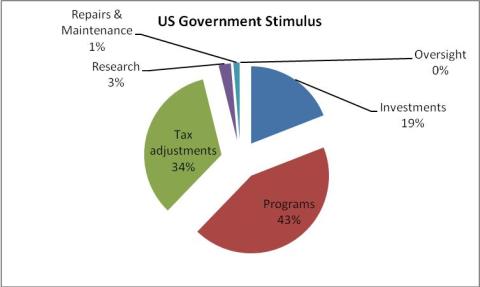The Obama Presidency
December 1, 2013
When Senator Obama was running for president, one of the concerns highlighted for me by someone smarter than me was that he had never before actually run anything in his life. He had never been in the position of being responsible for an income statement and balance sheet. His single greatest accomplishment was writing a book…about himself.
He then decided to run to be the chief executive of the planet’s biggest income statement and balance sheet. Unless one has been in that role, even on a small scale, one just doesn’t know whether they’ll have the capability to make the necessary decisions, ask the right questions and have the correct judgement to be a CEO.
President Obama has been described to me by an American friend (retired USAF Colonel who lived most of his early years overseas and then built up and sold a plastics business with 700 employees) who voted Obama the first time as going from America’s Commander in Chief to America’s Commander in Confusion.
If you’re interested in US politics this thorough New York Times article may be of interest.
270
November 7, 2012
270 is the number that Obama needed to win last night’s US general election. As of this morning he has 303 electoral college votes with a few more to be concluded.
President Obama won a second term, but not with a resounding victory as many of the pundits were claiming last evening.
Yes, he has a formidable majority in terms of electoral colleges, but he either won (by 0.75%) or lost (by 0.04%) the popular vote by my last calculations. He still doesn’t have control of the House of Representatives nor do the Democrats have the all important super-majority to block filibustering in the US Senate.
America is terrifically divided. Approximately 50% of its population did not want to award President Obama a second term.
In order to be successful he is going to have to show real leadership. He is going to have to reach across the aisle in a sincere and bona fide way in order to get anything meaningful done in the next four years.
Equally, the Republicans are going to have stop their obstruction of the President and work with him.
I hope both Obama and the Republican leadership in the House and Senate can do what Clinton and his counterparts did during his second term. Unfortunately I’m not optimistic. Neither President Obama or Congress’ leadership have shown a proclivity for deal making.
Let’s hope that Obama’s campaign for “Change” includes change in attitudes in the Oval Office and on the Hill.
Free enterprise, international economies, ballooning deficits
August 23, 2009
These matters are very topical for our political and free enterprise leaders. President Obama, Prime Minister Harper, Prime Minister Brown and other leaders are facing tremendous economic challenges.
While one may think these are matters isolated to 2009 and beyond, you may be interested in taking a few minutes to watch this excerpt from the 1980 Republican leadership debate between George H.W. Bush and Ronald Reagan.
As we now all know, Reagan went on to defeat Bush and then Carter to become president. President Reagan embarked on a terrific agenda of tax cutting and free enterprise policies. They worked.
One can only hope that President Obama, presiding over one of the largest increases of government in history, reviews his history lessons and takes a second look at the direction he has selected.
Sarah Palin
July 6, 2009
I have had a long standing interest in following US politics and I found the 2008 US election to be one of the most exciting. While I don’t agree with much of the tonic President Obama is administering to the current economic illness, I think the two choices American’s had for president in 2008 were both exceptional candidates.
When Senator McCain announced Alaska Governor Sarah Palin as his nominee for vice president I was surprised. She wasn’t someone on any list of prospects I had seen. At the time I described that decision as McCain’s Hail Mary pass for the election. As we now know this didn’t pay off for him.
The position of US vice president is important primarly because the occupant of that office becomes president in the event that the incumbent becomes incapacitated. The vice president is also a member of the legislative branch of government in his or her capacity as president of the Senate. The Senate’s president casts the deciding vote in the event of a tie.
If I were a betting man I’d predict that John McCain will be alive in November 2012 – which means that, barring a catastrophe, it would have been highly doubtful that a VP Sarah Palin would haved needed to be called upon to replace McCain. Nonetheless, she would still have been ” a heart beat away from the presidency.”
The more I learn about her, the more pleased that she isn’t today’s vice president. Now she may over time become well equipped for the job of president, but she’s got a lot of work to do between now and then. This Vanity Fair article, which was linked form a recent Wall Street Journal on Palin, does a pretty good job of describing Palin, a bit of her history and, most concerning, her character.
Vanity Fair is not gospel when it comes to politics. So I take the writer’s comments with a grain of salt. Nonetheless, it’s a worthwhile read if you’re interested in the free world’s leadership.
http://www.vanityfair.com/politics/features/2009/08/sarah-palin200908



